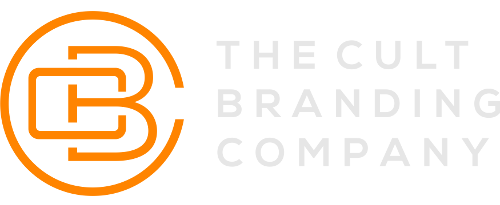26 Aug The Power of Magic

Magic has always been part of the human story: Magic is part of the rituals of shamans; the ancient Egyptian priesthood; Moses worked magic before Pharaoh’s court; magic is weaved into to the cosmic chess game of Greek mythology. Magic reconnects us to the experience of wonder.
Magic is a part of everyday life; we just miss it because we have our blinders on. As we age, we start to label things, build boxes for every idea, and ultimately we lose that sense of wonder. The laws and categories we develop determine what we can think: we are enclosed. But when something amazes us, and we see magic, we recover the original state of bliss.
What is magic?
“Magic is a way of living, ” wrote Carl Jung.
Swiss Psychologist Carl Jung explored magic via his inner work, what he called active imagination. This process allowed Jung to connect with his unconscious and observe the wisdom of the body in the form of natural images. In the Red Book, Jung wrote two essays on magic. The first was “The Gift of Magic.” In it, he enters into a dialogue with his soul:
Jung: “What should I do with magic?”
Soul: “Magic will do a lot for you.”
In the second essay “The Magician,” his inner search brings him to the doors of the Self.
Jung writes, “After a long search I found the small house in the country fronted by a large bed of tulips. This is where Philemon, the magician, lives with his wife, Baucis.”
Jung: “Philemon, old magician, how are you?”
Philemon: “My boy, you have learned something about magic?”
Jung: “I must admit that this is somewhat surprising. I had imagined magic as being somewhat different.”
Philemon: “Well, this shows you how little you understand about magic and how incorrect your notion of it is.”
Jung’s exploration of magic continues as he reflects on the difficulty to understand magic. Jung writes, “One cannot understand magic. One can only understand what accords with reason. Magic accords with unreason…everything that works magically is incomprehensible, and the incomprehensible often works magically.”
Defining “magic” is impossible because magic exists in the now; it elicits wonder and brings us to the experience of bliss.
The word “magic” points to all-ness. “As above, so below” could be called one of the oldest magic concepts. It hints at the idea that the universe is in sympathy with everything else. That all things, by the mere fact of their belonging to the same system, are one.
When technology gets closer to magic or the experience of wonder, that’s when we know we are looking at something that will transform us. As Arthur C. Clarke famously wrote, “Any sufficiently advanced technology is indistinguishable from magic.” Magic hints at the quantum potential of things. A wave of possibility.
Alan Moore, comic book writer and magician, says, “I believe that magic is art and that art, whether that be music, writing, sculpture, or any other form, is magic. Art is, like magic, the science of manipulating symbols, words or images, to achieve changes in consciousness…Indeed to cast a spell is simply to spell, to manipulate words, to change people’s consciousness, and this is why I believe that an artist or writer is the closest thing in the contemporary world to a shaman.”
What a Trickster Can Teach You
The trickster is a wise joker that misdirects for a purpose: to loosen your creativity and make you forget about your limiting belief systems.
In their book Sleights of Mind, neuroscientists Stephen L. Macknik and Susana Martinez-Conde write, “We realized now that magicians were just a different kind of artist: instead of form and color, they manipulated attention and cognition. Magicians do cognitive science experiments for audiences all night long, and they may be even more efficient that we scientist is in the lab.”
Magic works because humans have a hardwired process of attention and awareness that is hackable. Magic reveals the neural basis of consciousness itself. If you watch closely, you will notice that greatest magic show on earth is happening right now in your brain.
Magic as a Business Model: Walt Disney’s Magic
Walt Disney had his formula for creating a magic entertainment kingdom. In the process, Disney became synonymous with imagination and wonder. He built an empire and laid a foundation that endures: The Walt Disney Company, which he founded in 1923, is the world’s largest entertainment firm. It had sales of $53 billion last year, with a 700% stock rise since 2008.
Disney places magic at the core of everything they do: Disney Magic Ship, Magic Kingdom, Disney Magic, Backstage Magic, Disney’s Magical Express, they even have a Magical wristband, and the list goes on and on; magic everywhere.
The company invested billions in delivering magic at every touchpoint in the customer experience. Disney knows that by performing magic, they are supercharging their business growth. Their consumer insights show them that magic is a powerful archetype that people can’t resist.
Magical Leadership: The Twin Heroes
The King-Magician or Chief-Shaman pair, King Arthur and Merlin: It’s a common mythology to see these two heroes emerge together. In early American Indian mythology, two boys are born from their father the sun. Their mother sends them on a quest where they actualize their powers, as chief and shaman.
The Chief and The Shaman may seem far removed from our modern boardrooms, but these two twin energies are still the personal heroes that are necessary to transform and keep your business going today. Where would Apple be without an amazing team of visual wizards? Or consider the impact of Pixar storytellers on our culture.
Who are your chiefs, your leadership? Who are your magicians, creators of wonder? Is it your frontline staff? Is it your technology people? Are all your people part of something great that brings real magic to your customers’ world?

